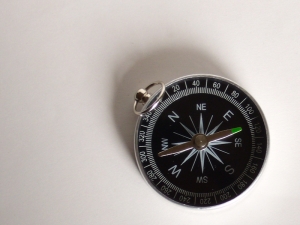Taiwanese or American? Two Nations Bid for Jeremy Lin’s Soft Power
The question of which hemisphere Asian-American NBA star Jeremy Lin belongs to has frequently emerged from the so-called “Linsanity” following the recent meteoric rise of the New York Knicks’ rookie point guard. Lin’s largest shareholders are the United States, where he was born and raised, and Taiwan, where his parents are from. The Chinese have also attempted to claim Lin on the basis of his grandmother’s birthplace of China’s Zhejiang Province. Each country desires a slice of the soft power—the power to obtain one’s desired outcomes through attraction rather than force—that Lin’s nuclear-hot star generates.
At its heart, Lin’s is an indisputably American story. The son of immigrants seeking a better life in the United States, Lin was born and raised in California in a Christian household. He is the first American-born NBA player of Chinese or Taiwanese descent, and on top of that, one of the few with Ivy League credentials (he graduated from Harvard). After a short stint with the San Francisco Golden State Warriors, Lin joined the Knicks in 2011. He’s already led the team to a 9-3 record since taking over as point guard in February 2012, which has resulted in the ‘Linsanity’ epidemic currently flaring across the U.S.
But on the other side of the Pacific, Lin also holds an intractable fan-base in his parent’s native Taiwan. The local newspapers are saturated with stories of teenage boys getting Lin-style haircuts and about how nicely the athlete treats his family.
Even Taiwan’s President Ma Ying-jeou has welcomed the attention Lin’s fame has brought to the country. Ma recently remarked to a visiting U.S. representative that both countries appreciated Jeremy Lin, to which the politician warmly quipped, “I’m sorry to tell you that Jeremy Lin is an American, a true-blooded born American who happens to be of Taiwanese ancestry, and we are proud to have him.”
The situation is nothing new to an island that values its global celebrities nearly as much as its economic wealth. Often internationally sidelined due to interference from Beijing which views it as a renegade province, the island of 23 million has invested greatly in its soft power reserves. Local celebrities like world number 1 female golfer Yani Tseng are held up as “the glory of Taiwan”. Adoration for such stars can at times even border on religiosity: many Taiwanese built household shrines to pitcher Chien-ming Wang during the height of his fame with the New York Yankees.
But does China deserve some of the credit for Lin’s athletic achievements? Its people think so, with hoards of netizens pleading for the 23-year old to play for the Chinese Olympic team. Sports viewership of CCTV, the state-owned channel carrying NBA games, has gone up 39 percent this year following Lin’s rise to stardom. Like Taiwan, Beijing is also a believer in the merits of soft power and has spent the last few years waging a charm offensive on the Western world via its films and the establishment of overseas Mandarin education centers, so Lin’s genetic debt to China is highly celebrated.
“Lin is virtually a household name in China, like Yao Ming,” China’s Xinhua news agency reported, referring to the Chinese-born NBA player.
Regardless of where Lin assigns his identity, he has shown he has the ability to bring out pride in fans across the world regardless of nationality or race.
“Taiwanese people emphasize his ‘Taiwanness’, but this part of him is still not known by people in America because he is American, period,” said one Taiwanese, surnamed Liu, to me. “He is not playing for Taiwan or the U.S. He is playing for himself.”
Tags
Issue Contents
Most Read CPD Blogs
-
May 17
-
May 29
-
June 3
-
May 15
-
May 20
Visit CPD's Online Library
Explore CPD's vast online database featuring the latest books, articles, speeches and information on international organizations dedicated to public diplomacy.









Add comment